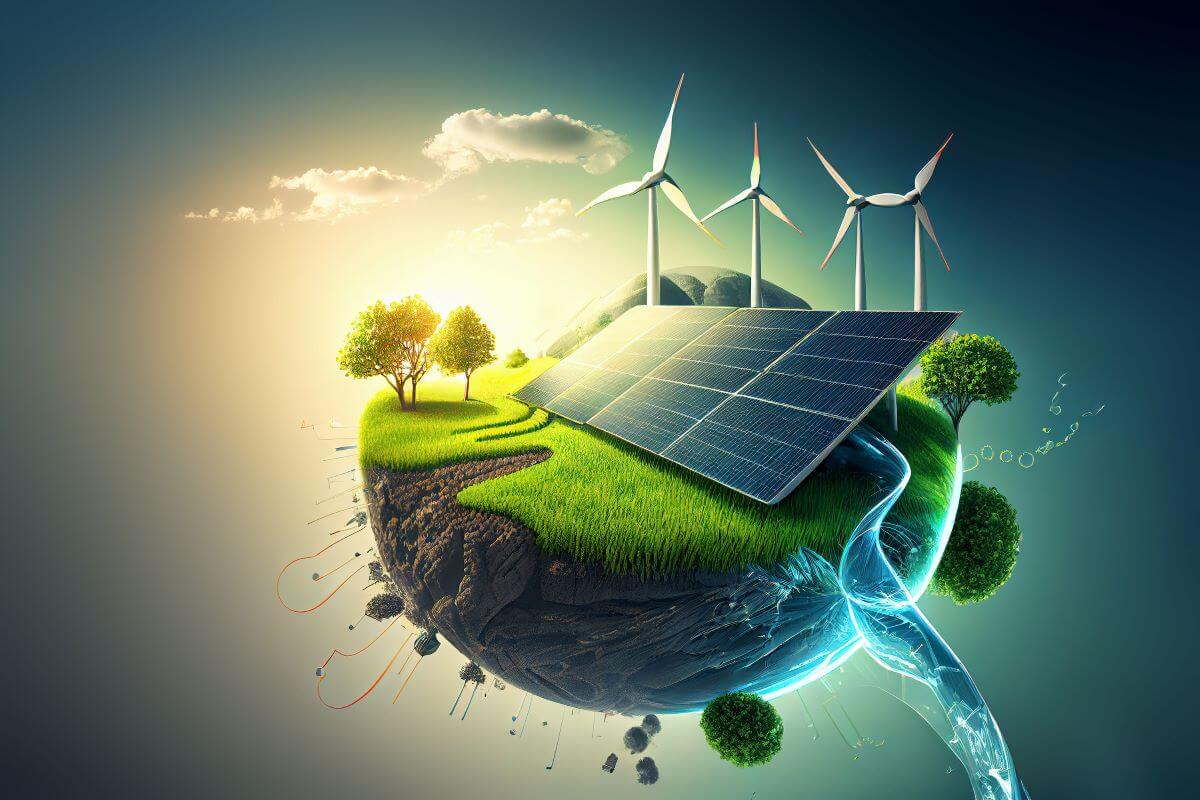In today’s rapidly evolving world, the conversation around sustainable energy solutions has become more critical than ever. As concerns about climate change and environmental degradation continue to grow, the need for renewable, eco-friendly energy sources has taken center stage. In this blog post, we’ll explore the importance of sustainable energy solutions, their impact on the environment and society, and the innovative technologies driving the transition towards a cleaner, greener future.
Understanding Sustainable Energy Solutions
Sustainable energy solutions encompass a wide range of technologies and practices aimed at harnessing renewable energy sources while minimizing environmental impact. Unlike traditional fossil fuels, which emit greenhouse gases and contribute to air and water pollution, sustainable energy sources offer a cleaner, more sustainable alternative. These sources include:
- Solar Power: Harnessing the sun’s energy through photovoltaic cells to generate electricity.
- Wind Power: Utilizing wind turbines to convert kinetic energy from the wind into electricity.
- Hydropower: Generating electricity from the gravitational force of flowing or falling water.
- Biomass Energy: Using organic materials such as wood, agricultural residues, and waste to produce heat and electricity.
- Geothermal Energy: Tapping into the Earth’s heat to generate electricity and provide heating and cooling solutions.
The Benefits of Sustainable Energy Solutions
Embracing sustainable energy solutions offers a multitude of benefits, both for the environment and society as a whole:
- Reduced Carbon Footprint: Sustainable energy sources produce minimal or no greenhouse gas emissions, helping to mitigate climate change and reduce dependence on fossil fuels.
- Energy Independence: By diversifying our energy sources and investing in renewable technologies, countries can enhance energy security and reduce reliance on imported fuels.
- Job Creation: The transition to sustainable energy creates new job opportunities in industries such as renewable energy installation, manufacturing, and research.
- Cost Savings: Over time, sustainable energy solutions can lead to significant cost savings for consumers and businesses through reduced energy bills and government incentives.
- Improved Public Health: By reducing air and water pollution associated with fossil fuel combustion, sustainable energy helps improve public health outcomes and quality of life.
Implementing Sustainable Energy Solutions
Implementing sustainable energy solutions requires a multifaceted approach involving government policies, private sector investment, technological innovation, and public awareness. Some key strategies include:
- Policy Support: Governments can enact policies that incentivize renewable energy development, such as tax credits, subsidies, and renewable energy targets.
- Investment in Infrastructure: Investing in renewable energy infrastructure, such as solar and wind farms, hydropower plants, and grid upgrades, is crucial for scaling up sustainable energy production.
- Research and Development: Continued investment in research and development is essential for advancing renewable energy technologies, improving efficiency, and reducing costs.
- Community Engagement: Engaging with local communities and stakeholders is critical for gaining support for renewable energy projects and addressing concerns about land use, visual impact, and wildlife conservation.
- Education and Awareness: Increasing public awareness about the benefits of sustainable energy and encouraging energy efficiency measures can help drive consumer adoption and behavior change.
Understanding Sustainable Energy Solutions
Sustainable energy solutions encompass a wide range of technologies and practices aimed at harnessing renewable energy sources while minimizing environmental impact. Unlike traditional fossil fuels, which emit greenhouse gases and contribute to air and water pollution, sustainable energy sources offer a cleaner, more sustainable alternative. These sources include:
- Solar Power: Harnessing the sun’s energy through photovoltaic cells to generate electricity.
- Wind Power: Utilizing wind turbines to convert kinetic energy from the wind into electricity.
- Hydropower: Generating electricity from the gravitational force of flowing or falling water.
- Biomass Energy: Using organic materials such as wood, agricultural residues, and waste to produce heat and electricity.
- Geothermal Energy: Tapping into the Earth’s heat to generate electricity and provide heating and cooling solutions.
The Benefits of Sustainable Energy Solutions
Embracing sustainable energy solutions offers a multitude of benefits, both for the environment and society as a whole:
- Reduced Carbon Footprint: Sustainable energy sources produce minimal or no greenhouse gas emissions, helping to mitigate climate change and reduce dependence on fossil fuels.
- Energy Independence: By diversifying our energy sources and investing in renewable technologies, countries can enhance energy security and reduce reliance on imported fuels.
- Job Creation: The transition to sustainable energy creates new job opportunities in industries such as renewable energy installation, manufacturing, and research.
- Cost Savings: Over time, sustainable energy solutions can lead to significant cost savings for consumers and businesses through reduced energy bills and government incentives.
- Improved Public Health: By reducing air and water pollution associated with fossil fuel combustion, sustainable energy helps improve public health outcomes and quality of life.
Conclusion
In conclusion, sustainable energy solutions hold the key to a cleaner, more sustainable future for our planet. By harnessing the power of renewable energy sources, we can mitigate climate change, enhance energy security, create new economic opportunities, and improve public health outcomes. As we continue to innovate and transition towards a more sustainable energy system, collaboration between governments, businesses, communities, and individuals will be essential to achieving our shared goals of a greener, healthier planet for future generations.










